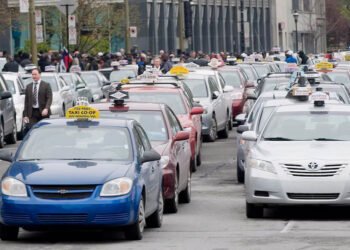Imagine driving through the busy streets of Washington, D.C., when suddenly, another car crashes into you. The initial shock is overwhelming, and the situation quickly becomes a mix of confusion and stress. Knowing your rights after a car accident is crucial to navigating the aftermath.
This guide will help you understand what steps to take and how to protect yourself legally.
Immediate Steps to Take After an Accident
The moments following a car accident are critical. First and foremost, ensure everyone’s safety. Check yourself and others for injuries and call 911 immediately. This is important even if the accident seems minor. Police will document the scene, and medical responders will attend to any injuries.
While waiting for help, if you are able, document the scene. Take pictures of the damage to all vehicles involved, any visible injuries, and the surrounding area, including traffic signs and signals. This visual evidence can be vital later. Also, gather information from all parties involved, including names, contact details, driver’s license numbers, and insurance information. Witnesses’ contact information can also be very helpful.
Consulting with a Lawyer: Why It’s Crucial
After a car accident, one of the most important steps is consulting with an experienced lawyer. Ashcraft & Gerel is a well-known law firm in Washington, D.C., specializing in car accident cases. They offer a free consultation to help you understand your rights and options. You can check out more information about them here: https://www.ashcraftandgerel.com/washington-dc/car-accident-lawyers/
Having a lawyer on your side ensures you have an advocate who can handle legal complexities, negotiate with insurance companies, and fight for the compensation you deserve.
Understanding D.C. Traffic Laws
Washington, D.C., has specific traffic laws that impact car accident cases. Understanding these laws is crucial for determining fault and liability. For example, D.C. follows the rule of contributory negligence, which means that if you are found even slightly at fault for the accident, you may be barred from recovering any compensation.
Reporting the Accident
In D.C., it is mandatory to report any car accident that results in injury, death, or significant property damage to the police. The police report is an official document that details the accident, which can be critical for insurance claims and legal proceedings. When the police arrive, provide them with accurate information but avoid admitting fault. The police report will include their assessment, which can play a significant role in your case.
Medical Attention and Documentation
Even if you feel fine after the accident, it’s essential to seek medical attention. Some injuries, such as whiplash or internal injuries, may not show symptoms immediately. Seeing a doctor ensures that all injuries are documented and treated promptly. Keep detailed records of all medical treatments, diagnoses, and expenses. These documents are crucial when filing an insurance claim or lawsuit.
Dealing with Insurance Companies
Communicating with insurance companies can be tricky. They may try to minimize the payout or even deny your claim. It’s important to report the accident to your insurance company as soon as possible, but be cautious about what you say. Stick to the facts and avoid speculating about fault.
Fault and Liability in D.C. Car Accidents
Determining fault in a car accident is crucial because D.C. follows the contributory negligence rule. This rule states that if you are found even 1% at fault, you cannot recover damages from the other party. This harsh rule makes it essential to gather comprehensive evidence to prove the other driver’s fault. Your lawyer will play a key role in investigating the accident, gathering evidence, and building a strong case to establish liability.
Compensation You May Be Entitled To
After a car accident, you may be entitled to various types of compensation. This can include medical expenses, lost wages, pain and suffering, and property damage. Medical expenses cover costs for treatments, medications, and rehabilitation. Lost wages compensate for the income you missed due to the accident. Pain and suffering refer to the physical and emotional distress caused by the accident. Property damage covers the repair or replacement of your vehicle.
Filing a Lawsuit
In some cases, it may be necessary to file a lawsuit to seek compensation. This is typically the case when the insurance company refuses to offer a fair settlement. Your lawyer can advise you on whether filing a lawsuit is the best course of action. The legal process involves several steps, including filing a complaint, discovery, settlement negotiations, and potentially a trial. It’s important to act promptly, as there are strict time limits, known as statutes of limitations, for filing a lawsuit after a car accident.
Preparing for Court
If your case goes to trial, it’s essential to be prepared. Your lawyer will guide you through the process, helping you understand what to expect and how to present your case effectively. This includes gathering and organizing evidence, preparing witness testimonies, and developing a compelling argument to present in court.
Conclusion
Navigating the aftermath of a car accident can be overwhelming, but understanding your rights is essential to protect yourself and secure the compensation you deserve. From the initial steps at the accident scene to consulting with a knowledgeable lawyer, each action you take can significantly impact the outcome of your case.
By being informed and proactive, you can manage the aftermath of a car accident with greater confidence and peace of mind. Don’t hesitate to seek professional legal assistance to ensure that your rights are protected and you receive the compensation you are entitled to.












